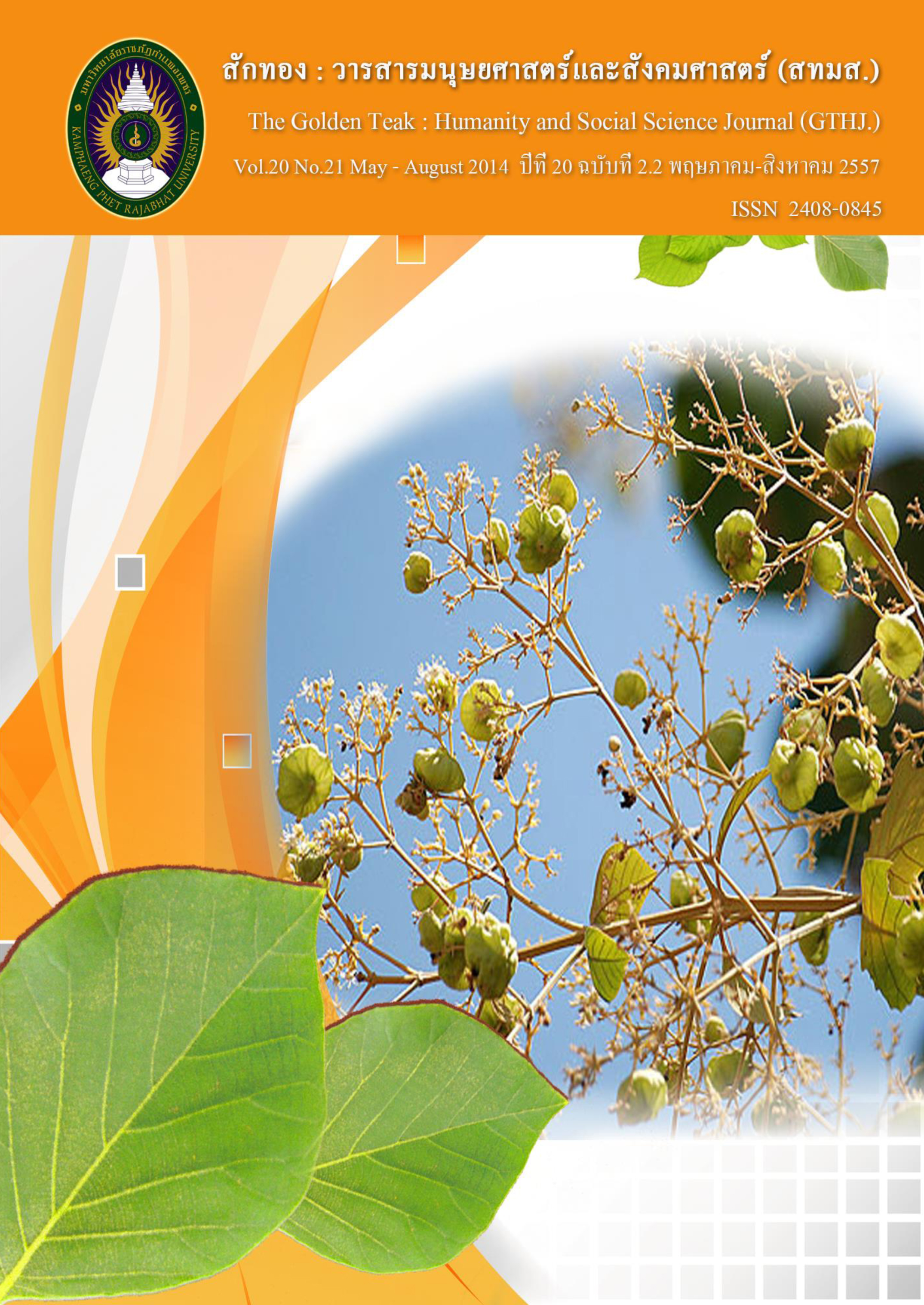The Paradigm of New Public Management Adapted to Personnel Development in the Organization of Royal Thai Police
Main Article Content
Abstract
The objectives of this research were 1) to study levels of new public management and human resource development in the organization of Royal Thai Police, 2) to find out new public management affecting human resource development in the organization of Royal Thai Police; and 3) to present the paradigm of new public management adapted to individual development in the organization of Royal Thai Police. The samples for this research were 1,640 police out of 4,771 police in Royal Thai Police. Questionnaires were used as the tool for collecting data, which were then analyzed with package programs for frequency, percentage, mean, standard deviation, and Multiple Regression analysis. The research results showed that: 1. The samples were more males than females, aging 41-50 years, 51 years up, 31-40 years, and less than 30 years, holding bachelor degree of education or equivalence, working as the officers, with the positions of medium level of executive and chief executive, with working experience of 15 years up. 2. Overall opinions on the new public management of the samples were at highest level. The new public managementin the issue of working process reduction was found the most while the less was on direction, evaluation, setting policy, and state system development. Working process was modified for more modern. 3. Human resource development was found the most in development of learning and working performance while the less was in evaluation of performance, being a learning organization, and human resource development with the system of providing incentives. The opinions of the samples on human resource development were that the career of police brought them pride and honor. 4. The result of hypothesis testing revealed that the independent variables of new public of the bureaucracy development, determination of policy, reduction of the working process, direction and evaluation of performance resulted in human resource development of the state as a whole.
Article Details
บทความที่ได้รับการตีพิมพ์เป็นลิขสิทธิ์ของวารสาร สักทอง : วารสารมนุษยศาสตร์และสังคมศาสตร์ สถาบันวิจัยและพัฒนา มหาวิทยาลับราชภัฏกำแพงเพชร
ข้อคิดเห็นใดๆ ที่ปรากฎในวารสารเป็นวรรณกรรมของผู้เขียนโดยเฉพาะ ซึ่งมหาวิทยาลัยราชภัฏกำแพงเพชรและบรรณาธิการไม่จำเป็นต้องเห็นด้วย
References
สถาบันวิจัยและให้คำปรึกษาแห่งมหาวิทยาธรรมศาสตร์. (2546). การพัฒนาการบริหารงานบุคคลส่วนท้องถิ่น. กรุงเทพฯ : สำนักงานคณะกรรมการมาตรฐานการบริหารงานบุคคลส่วนท้องถิ่น. สำนักงานปลัดกระทรวงมหาดไทย.
สุพจน์ ทรายแก้ว. (2545). การจัดการภาครัฐแนวใหม่. กรุงเทพฯ : เทียนวัฒนา.
สุโขทัยธรรมาธิราช, มหาวิทยาลัย. (2546). ความคิดเห็นของข้าราชการ ประชาชนและผู้มีส่วนได้ส่วนเสียเกี่ยวกับผลการพัฒนาระบบราชการ. โครงการวิทยาลัยการเมือง สาขาวิชารัฐศาสตร์.
ตำรวจแห่งชาติ, สำนักงาน. (3 ตุลาคม 2555). นโยบายการบริหารราชการสำนักงานตำรวจแห่งชาติ. [ออนไลน์]. เข้าถึงได้จาก www.immigration.go.th/download/scr/
RTP_policy_2555.pdf. (4 มิถุนายน 2557).
William Niskanen, W. (1973). Bureaucracy – Servant or master: Lessons from America. London: Institute of Economic Affairs.


